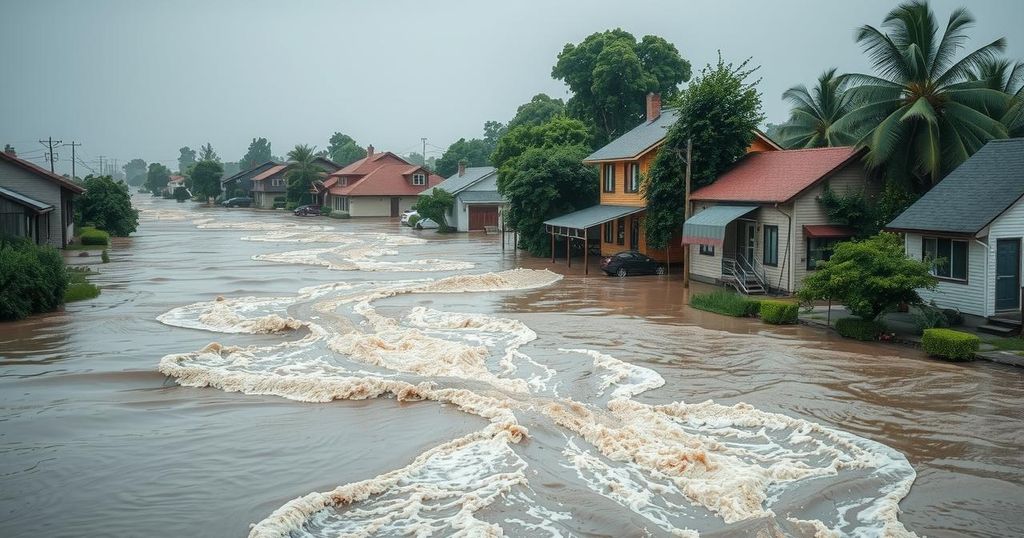The River Nile’s overflow has led to severe flooding in South Sudan, displacing over 379,000 people this year and forcing many to seek refuge in the Jonglei Canal. Villages have been submerged and livelihoods destroyed as climate change exacerbates seasonal flooding. Residents face dire conditions, relying heavily on aid due to the lack of infrastructure and support services. The ongoing humanitarian crisis highlights the challenges posed by both environmental and political instability in the region.
The overflowing River Nile has resulted in significant flooding in South Sudan, displacing thousands of individuals and forcing many families to seek refuge along the unfinished Jonglei Canal. Villages have been submerged, farmland ruined, and livestock lost, as the effects of seasonal flooding have intensified over recent years. In Pajiek, a newly formed community in Jonglei state, residents struggle for survival with inadequate resources, relying heavily on aid as they adapt to a new reality shaped by climate-related disasters. The World Bank has described South Sudan as the most vulnerable country to climate change, exacerbating its existing challenges—a situation worsened by political instability and insufficient coping mechanisms. The communities in Jonglei, such as the Dinka, Nuer, and Murle, are disproportionately affected due to their reliance on livestock and agriculture. With over 379,000 people displaced by this year’s floods, the humanitarian crisis continues to grow as the residents grapple with the loss of their homes and livelihoods amidst deepening economic woes and diminishing food assistance.
South Sudan has a long history of seasonal flooding, particularly in pastoral communities around the Sudd wetlands, which are part of the Nile River floodplain. However, the extent of flooding has significantly increased since the 1960s, leading to the submergence of villages and loss of agricultural productivity. The compounded impact of climate change and local political instability has severely limited the nation’s capacity to respond to such disasters. The Jonglei Canal, a century-old project, has become a crucial lifeline for many displaced families but lacks the facilities to support their needs adequately. The ongoing conflict and economic difficulties have further complicated the situation, resulting in critical shortages of healthcare, food, and other necessary services.
The current flooding crisis in South Sudan underscores the urgent need for comprehensive strategies to address the underlying vulnerabilities exacerbated by climate change and political instability. As thousands of residents face dislocation and survival challenges, the international community must prioritize humanitarian aid and long-term solutions to restore stability and resilience. The plight of displaced individuals, particularly in Jonglei state, serves as a stark reminder of the intersection between environmental factors and human suffering, demanding immediate attention and action.
Original Source: www.the-independent.com






